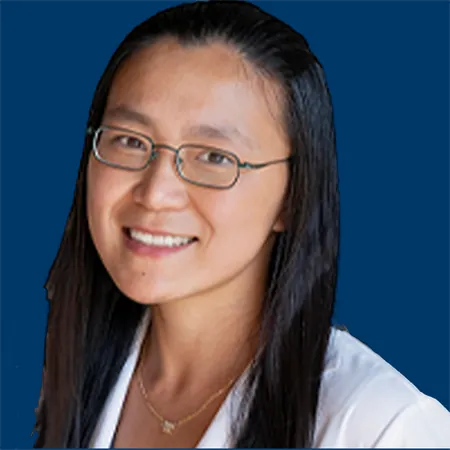
Groundbreaking Study Reveals Hidden Truth About Tumor Formation: Are YOU at Risk?
2025-03-27
Author: Nur
Introduction
In a major breakthrough, researchers from City of Hope, one of the leading cancer research and treatment centers in the United States, have unveiled crucial insights into the complex two-step process behind tumor formation. Their groundbreaking study, published in this month's edition of Cancer Discovery, demonstrates that while cell mutations are pivotal, they are not the sole factor in the development of tumors. The research emphasizes that additional contributors, particularly chronic inflammation, play a significant role in triggering cancer.
The Study's Insight
For years, scientists have pondered whether mere genetic mutations—whether inherited or caused by lifestyle factors—are sufficient to lead to cancer. According to Dr. Yun Rose Li, the study's lead author and assistant professor in City of Hope's Department of Radiation Oncology and Department of Cancer Genetics and Epigenetics, the findings indicate a pressing need to shift our cancer prevention strategies.
Shifting Focus in Cancer Prevention
Dr. Li pointed out that our traditional focus has largely been on curbing exposures that lead to mutations, such as smoking cessation and minimizing pollutants in food and water. 'Yet, our findings suggest that we must also direct our attention to the biological mechanisms that spur tumor development,' she states. 'It’s crucial not just to avoid carcinogenic conditions but to also minimize chronic inflammatory triggers.'
The Role of Inflammation
Notably, the study highlights that not all smokers develop lung cancer, implying that other factors such as inflammation can be crucial in subsequent tumor growth after initial mutations. Dr. Li suggests that understanding the dynamics behind tumor development could revolutionize personalized risk assessments available through programs like City of Hope’s Cancer Screening & Prevention Program.
Public Health Implications
Public health implications are significant, as Dr. Li warns, 'It’s essential to not only avoid mutations caused by smoking and pollutants, but even more critically, to avoid chronic inflammatory conditions linked to a high-fat diet, obesity, excessive alcohol intake, sedentary lifestyles, chronic stress, autoimmune diseases, and gut microbiome imbalances.'
Methodology of the Study
The researchers engineered a novel approach by replicating classic experiments from the 1950s using modern sequencing technologies to explore inflammation-driven tumor models. They treated animal skin tissues with two compounds: one that induces mutations and another that instigates inflammation. Their findings confirmed that tumors only arose when both agents were present. This reveals a startling insight: the immune system fails to eliminate the mutated cells, allowing them to persist and potentially develop into tumors when triggered by inflammation.
Fetal Exposure and Tumor Development
Further layers of this research included demonstrating that even fetal exposure to a low dose of the initial mutation-inducing compound could set the stage for tumor development later in life when combined with inflammatory signals. 'This means initial exposure can set off the chain reaction needed for tumor formation, but subsequent signals are essential for tumor development,' Dr. Li notes.
Broader Implications
While the study focused primarily on skin cancer, its implications extend to various cancer types, particularly those influenced by age and lifestyle factors. As Dr. Li puts it, 'Mutated cells represent an ongoing risk—they are like ticking time bombs, silently waiting for the right trigger to unleash their potential.'
Future Directions
Going forward, the research team aims to delve deeper into the cellular mechanisms behind tumor promotion. Dr. Li is particularly interested in how metabolic dysfunctions can alter the epigenome, potentially awakening dormant mutated cells.
Conclusion
'As we uncover more about tumor promotion, we hope this research will pave the way for innovative cancer prevention strategies,' she concludes. With these pivotal findings, it's clearer than ever: understanding tumor formation goes beyond just recognizing mutations—it's about addressing the singular role of inflammation and lifestyle in the cancer continuum. Will this reshape our approach to cancer prevention and treatment? Stay tuned for what’s next in this vital area of research!




 Brasil (PT)
Brasil (PT)
 Canada (EN)
Canada (EN)
 Chile (ES)
Chile (ES)
 Česko (CS)
Česko (CS)
 대한민국 (KO)
대한민국 (KO)
 España (ES)
España (ES)
 France (FR)
France (FR)
 Hong Kong (EN)
Hong Kong (EN)
 Italia (IT)
Italia (IT)
 日本 (JA)
日本 (JA)
 Magyarország (HU)
Magyarország (HU)
 Norge (NO)
Norge (NO)
 Polska (PL)
Polska (PL)
 Schweiz (DE)
Schweiz (DE)
 Singapore (EN)
Singapore (EN)
 Sverige (SV)
Sverige (SV)
 Suomi (FI)
Suomi (FI)
 Türkiye (TR)
Türkiye (TR)
 الإمارات العربية المتحدة (AR)
الإمارات العربية المتحدة (AR)